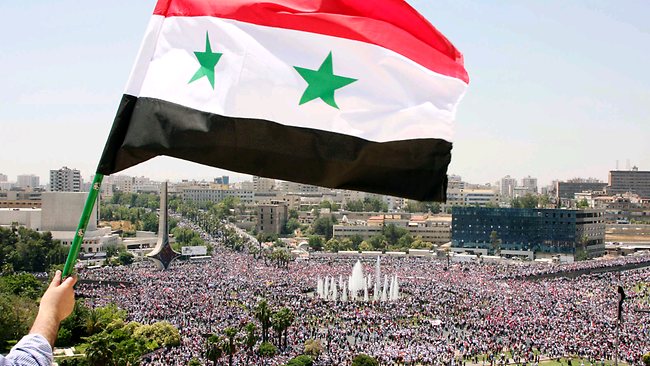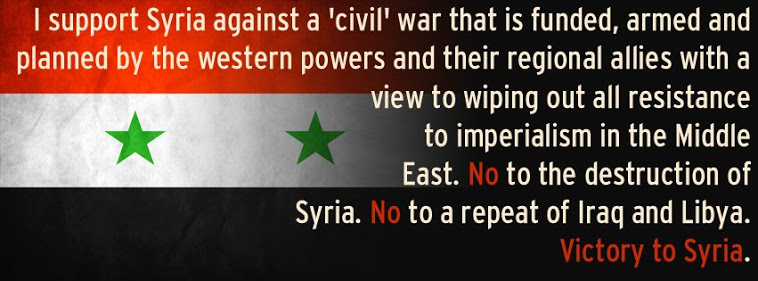CNN NEWSROOM
Interview With Former NATO Supreme Allied Commander Wesley Clark; President Obama Requests Authority for War On ISIS
Aired February 11, 2015
THIS IS A RUSH TRANSCRIPT. THIS COPY MAY NOT BE IN ITS FINAL FORM AND MAY BE UPDATED.
BROOKE BALDWIN, CNN ANCHOR: Hour two. You're with me here on CNN. I'm Brooke Baldwin.
We're minutes away from hearing from President Barack Obama, who will speak on something that actually has not been done in 13 years. He's asking Congress to authorize a war and specifically authorize military force on ISIS, which, of course, begs the question, isn't the U.S. already dropping bombs on ISIS? You know the answer to that. That's yes.
For six months, the U.S. has been doing that. But think about it this way. The president has the ability to start using military force, which he has been doing in both Iraq and Syria, but he cannot keep using that military force indefinitely or without getting that OK from Congress to continue doing so.
But before authorizing anything, Congress wants three key questions answered. Let me run through this for you. One, how long will this war take? The president now says three years. Geographically, where will this war happen, number two? Answer, unsure, but the battlefield will not be restricted to Iraq and Syria. And, three, what exactly is the scope of the U.S. involvement?
Well, no boots on the ground, specifically no enduring offensive ground combat operations. We're going to a little bit talk more about that and what we should expect from the president in just a moment.
BALDWIN: I'm now joined by General Wesley Clark, former NATO supreme allied commander.
So good to see you, sir, and author of "Don't Wait For the Next War."
Back to the fact we're waiting for the president. I was talking to our White House correspondent at the top of the last hour, Jim Acosta, and he was actually pressing in the daily briefing about what will we hear from the president and he was asking if his message will intentionally be fuzzy, his language he used. That's part of the problem. The president hasn't been clear on his strategy on this war. Do you think we will have a clear message?
WESLEY CLARK, FORMER NATO SUPREME ALLIED COMMANDER: I think you will see greater clarity than we have seen in the past.
BALDWIN: Greater clarity.
CLARK: Greater clarity. Look, the president in terms of what we're doing against ISIS is going to put in or has put in already this going to Congress to ask for legal permission to get the authorization to use force. And that's a necessary step, because we don't know where the battle with ISIS is going to go.
It's pretty clear that you can't do it with airpower alone. We want the coalition members on the ground to provide the ground forces. It's pretty clear that they need some help, like maybe close air support from the United States. You can't get that without putting some special forces troops up with them.
BALDWIN: Do you think that at this point we will hear that?
(CROSSTALK)
CLARK: I think you will hear something that will point in that direction.
BALDWIN: But nothing specifically as far as ground combat troops?
CLARK: I don't think you will hear the introduction of ground combat troops. I certainly hope we won't because I don't think the situation justifies it.
I think our previous experience in the region indicates that that is not really the right way to solve this issue.
BALDWIN: OK. What about how -- they're not putting any geographic limits to this battle on the table. What would that tell you about any kind of intelligence the president and the Pentagon would have as far as ISIS in let's say neighboring countries?
CLARK: I think that it's important to leave the geography flexible at this point.
We know what we're doing in Iraq. We have been a little inhibited in Syria. We have got some major geopolitical questions to address. For example, if you get rid of ISIS in Syria through massive work militarily, then where does that leave us with Bashar Assad? There's no answer to that.
BALDWIN: Right.
CLARK: And on the other hand, you don't want to cooperate with Bashar Assad, the Iranians, Hezbollah and the Russians, because they're not our friends either. So you're in a little bit of a dilemma on that and we need to leave that kind of fuzzy on this.
But we need the authorization to follow the leads and put the troops in and play this. Look, ISIS got started through funding from our friends and allies, because as people will tell you in the region, if you want somebody who will fight to the death against Hezbollah, you don't put out a recruiting poster and say sign up for us. We will make a better world.
You go after these zealots and you go after these religious fundamentalists. That's who fights Hezbollah.
BALDWIN: General, I'm hearing you on...
CLARK: It's like a Frankenstein.
BALDWIN: I'm hearing you on keeping Syria fuzzy. But they have been very clear in wanting to destroy and dismantle ISIS. That's not fuzzy to me at all. The question would be if they wipe out is in Syria, which is the goal, then what with Bashar al-Assad? There has to be a plan for that phase.
CLARK: Yes. Well, some things you can't exactly plan that clearly because you're dealing in the realm of politics. Part of it is, can you get the Russians to withdraw their support from Bashar Assad? How would you do that?
Well, you're dealing with the Russians in Ukraine right now and they're not being helpful.
BALDWIN: No, they're not.
CLARK: In fact, from Putin's perspective, he probably sees it as the opposite play. He says that because the Americans need us to help on Iran, because they don't have a ground force in Syria, they're actually relying on us and therefore we can push Ukraine further and the Americans won't stop us because they're afraid they will lose our cooperation elsewhere in the world.
He's playing it that way. This is difficult. You can't always lay everything out linearly in advance. But you do have to get the authorization to use ground troops in there because you don't want people to say -- on the other side say, I have no problems. The Americans can't possibly get here because they are prohibited.
I would like it to be pretty wide open in terms of geographic limits. I think the president recognizes he's going to need to put some people working more closely forward with the ground troops. I think we have found through our experience in Iraq and Afghanistan that you have to have governments to solve this problem.
Just going out and killing people, that doesn't solve the problem. The governance can't be done by the United States.
(CROSSTALK)
BALDWIN: I'm glad you brought up Putin. I was talking to Mikheil Saakashvili, the former president of Georgia, the other day and he was saying to me Putin is loving this that so much of the U.S.'s eye is on the ball on Iraq and Syria and perhaps that's one of the reasons why he's taking advantage it seems of what's happening.
(CROSSTALK)
CLARK: There's no doubt about it.
BALDWIN: No doubt. General Wesley Clark, thank you. Appreciate it.
CLARK: Thank you.
BALDWIN: By the way, President Obama is expected to speak in just about 20 minutes. Of course, we will bring that to you live as soon it begins.
SOURCE | http://transcripts.cnn.com/TRANSCRIPTS/1502/11/cnr.09.html











